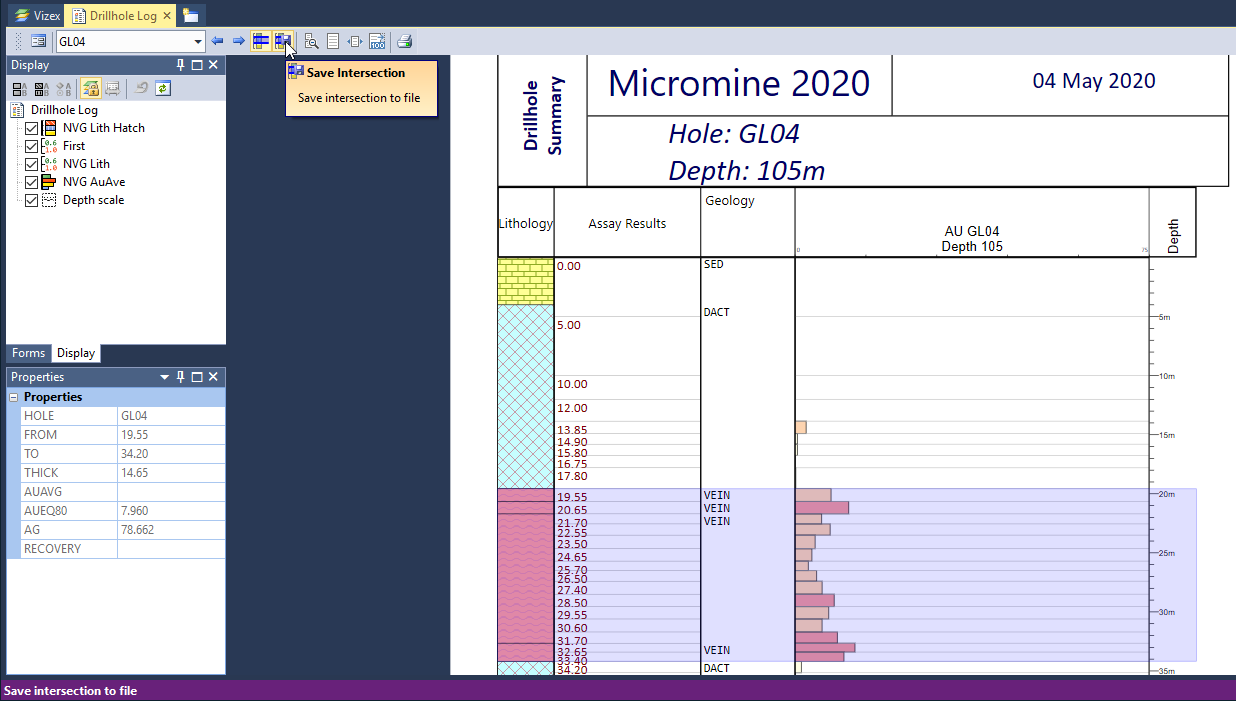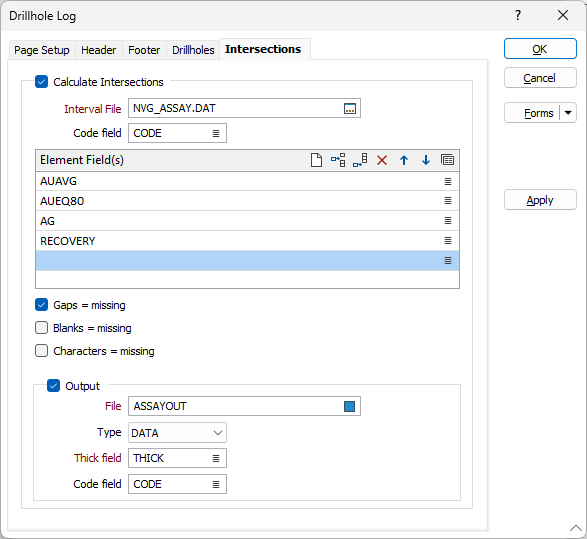Intersections
To calculate and display intersections, you need an Interval file with one or more fields containing assay values. You can display values, graphs and a downhole reference scale, positioning these elements on the screen according to your requirements.

Calculating grade intersections is an interactive process which is done in the display. See: Create Intersections for more information.
Calculate Intersections
Select this check box to enable the intersections options.
Interval File
Double-click, or click on the Select icon, to select the name of the Interval file that contains the data to be used in intersection calculations.
Code field
If a Code field is specified, code values will be written to the Output file in addition to the calculated length weighted average values. Double-click or click on the List icon, to select a Code field.
Element Fields
Use the grid to select the names of the fields in the Intersection file that will be used to calculate the grade of intersections. The Input fields you select must be Numeric fields. The intersection calculation will calculate an average, weighted by the sample length (To field - From field) of these fields. Use the buttons on the local toolbar to Manage the rows in the list.
Select options to specify whether gaps in the data, blank values in the data, and character strings (typically values preceded by a < sign) will be treated as missing all regarded as zero by the intersection calculation
By default missing values, blank values, and character strings (typically numeric values preceded by a < sign) are regarded as zero by the intersection calculation, unless one or more of the following options are selected:
| Option | Description |
|---|---|
| Gaps = Missing | If this option is selected, the length of the sample of any missing value in any field over an interval is treated as NULL for averaging. Otherwise the interval is included in the averaging and is treated as if it had a value of zero. |
| Blanks = Missing | If this option is selected, interval records that contain blank values will be treated as missing and ignored. Otherwise the interval is included in the averaging and is treated as if it had a value of zero. |
| Characters = Missing | If this option is selected, interval records that contain non-numeric strings will be treated as missing and ignored. Otherwise the interval is included in the averaging and is treated as if it had a value of zero. |

Output
Select the check box to write the results of the intersection calculations to an Output file.
File
Enter (double-click or click on the Select icon to select) the name of an Output file where the results of the calculation will be written. If the file exists it will be overwritten.
Type
Select the file type for the output file using the drop down.
Thick field
Enter (double-click or click on the List icon to select) the name of the field to which Thickness values will be written.
Code field
Enter (double-click or click on the List icon to select) the name of the field to which Code values will be written.
Forms
Click the Forms button to select and open a saved form set, or if a form set has been loaded, save the current form set.
Run
Finally, click Run to open the Quick Log display window.